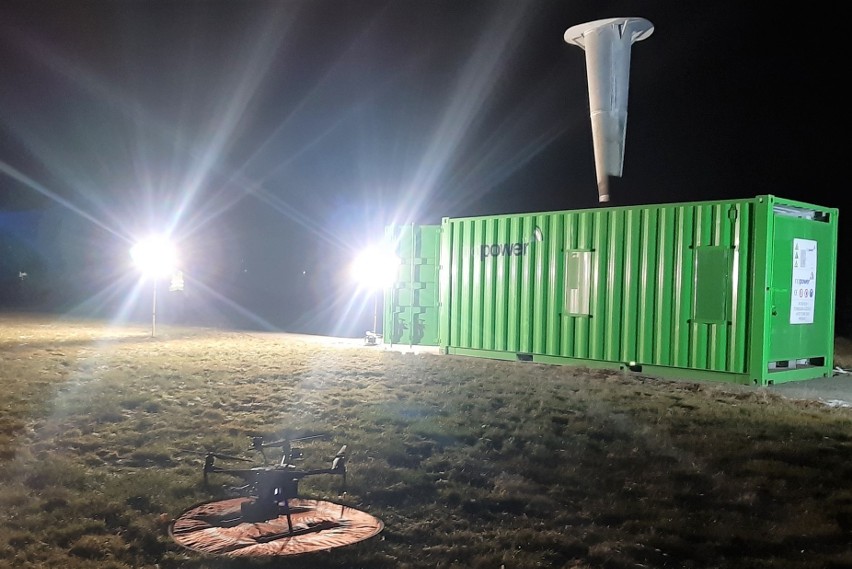A town in southern Poland is testing a new sound “cannon” that pushes toxic particles higher up into the air. The award-wining scientists behind the shockwave generator say it could be a “gamechanger” in tackling Poland’s smog problem, though there are concerns about the noise it makes.
Kalwaria Zebrzydowska, a town of 5,000, sits in the southern region of Poland that has the country’s highest levels of air pollution, which are in turn among the worst in Europe.
The burning of low-quality fuels to heat homes mean that air quality norms are frequently exceeded in the colder months, resulting in an estimated 50,000 premature deaths per year.
Researchers from AGH University of Science and Technology in Kraków say their invention, which is being tested in Kalwaria Zebrzydowska, reduces high levels of PM2.5 and PM10 particle pollution by blasting shockwaves created by explosions of a mixture of flammable gases and air.
These destroy the structure of the temperature inversion layer in the atmosphere, producing vertical movements to reduce air pollution. A mobile measurement station mounted on a drone is used to test the effect on air quality in the vicinity.
The scientists, who patented the device in 2020 and have since received awards including a gold medal at the International Exhibition of Inventions in Geneva, are studying the required frequency of the blasts as well as the necessary duration. They say that initial results are promising.
“We have found that if we use the cannon for between half an hour and an hour, the pollution is reduced by 15-30% within a perimeter of two-three kilometres,” Dominik Gryboś told AFP. The effects last for between one and three hours, he added.
Officials in the town apologised to residents for potential disturbance caused by noise from the cannon during testing, which will go on in the daytime until mid-February when smog levels are high.
But one resident told AFP that “we can barely hear the sound” and said that the potential benefits outweighed such concerns. “We can’t air our flats because it stinks so much. So, if it can help, let them do the tests.”
The estimated cost of using the invention is 1,000-1,500 zloty (€220-€330) per hour. Tests were also carried out in Skawina, near Kraków, late last year, with local officials saying that the smog problem demanded “creativity, courage and innovative thinking” and boasting of their contribution “to Polish science and one of many steps taken to ensure that residents can breathe freely”.
While various strategies have been tried to improve Poland’s air quality, evidence in Kraków suggests that its ban on burning coal and wood – making it the first city in the country to do so – has been perhaps the most effective.
Main image credit: Gmina Kalwaria Zebrzydowska

Ben Koschalka is a translator, lecturer, and senior editor at Notes from Poland. Originally from Britain, he has lived in Kraków since 2005.




















